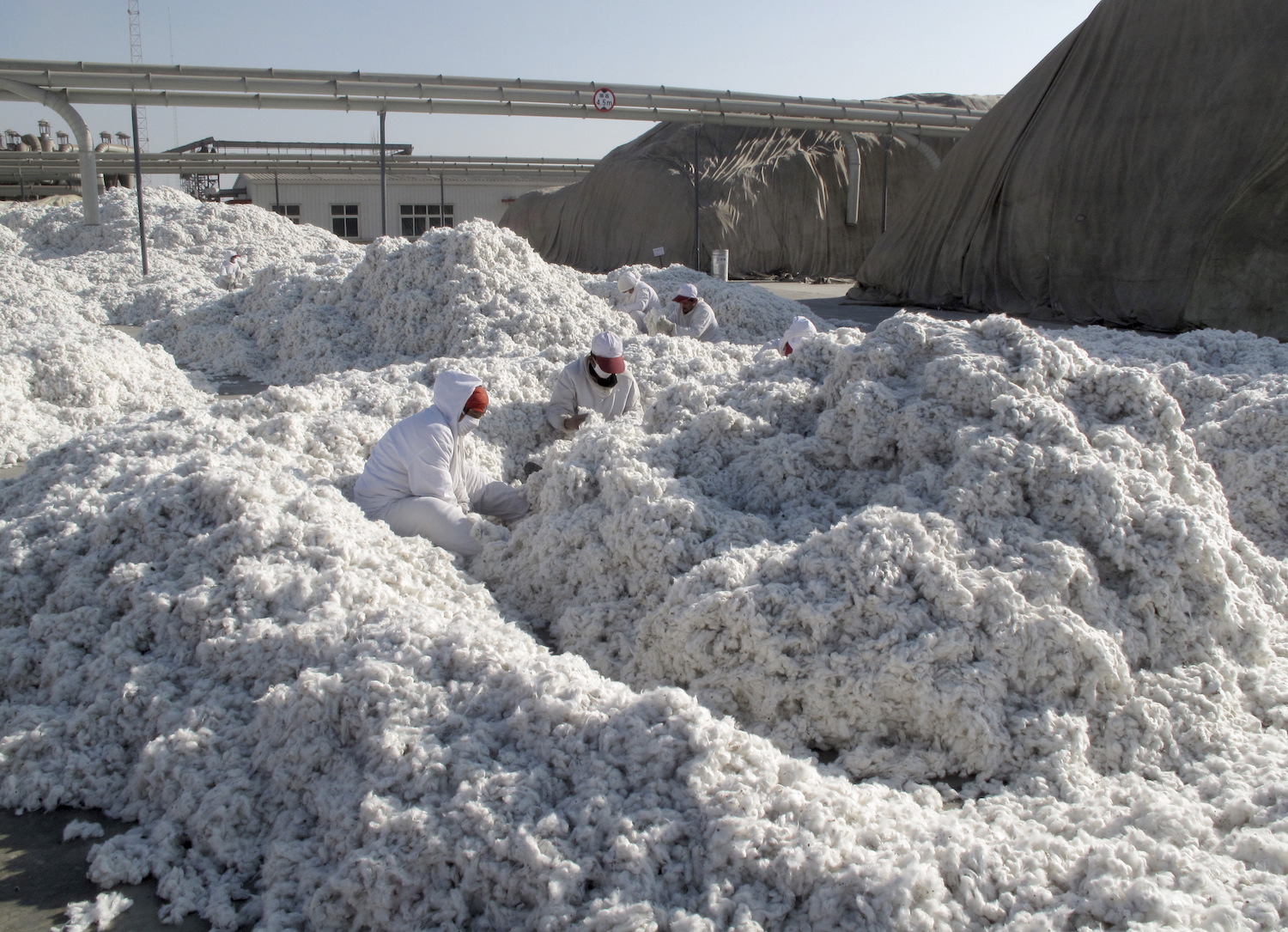(ATF) The volume of Chinese media propaganda has been cranked up in the furore over cotton from the Xinjiang in the country’s west.
Chinese media outlet The Paper said on Tuesday (March 30) that “reports of H&M and other European and American brands boycotting Xinjiang cotton must have been read by everyone. Another slander against China’s Xinjiang …” But, it said, whoever chooses to fabricate, or believe a lie, will have to bear the price.
Xinjiang is the largest region in western China. Formerly known as East Turkistan, it was annexed by the Communists along with Tibet and ‘Inner Mongolia’ shortly after they won the civil war against the Nationalists or Kuomintang in 1949. The bulk of Kuomintang forces retreated to Taiwan with leader Chiang Kai-Shek (Jiang Jieshi). China also announced it had ownership of the South China Sea and parts of the East China sea. East Turkistan was renamed Xinjiang, which means “new territories” in Chinese.
China Youth Daily said there are forces behind the “black guns” who fire on China-related issues and they should show their true shape.
It said Xinjiang had become the most important target for the ‘black guns’ of Western anti-China forces. They had done everything possible to set up “targets”, starting from its “genocide” remarks and creating the biggest lie of the century around the Xinjiang issue, it said.
This time the black guns aimed at Xinjiang cotton, the shooter was the Swiss Better Cotton Development Association (BCI), the Youth Daily said. As the “international standard” of the global cotton industry, it has been targeting Xinjiang cotton for more than two years.
CCTV reporter Wang Li, when speaking with companies in Xinjiang dealing with cotton purchases and product processing, noticed that many export orders for cotton products had been cancelled in 2020.
Just after New Year’s Day this year, Wang Li went to Xinjiang to look into these issues. Wang Li discovered that BCI first aimed at Xinjiang in March 2019. At that time, a report in the Wall Street Journal claimed that Xinjiang violated human rights in a disguised form. Then BCI initiated an investigation into “forced labour”, the Youth Daily reported.
In March 2020, many Xinjiang cotton enterprises received emails from BCI, which wanted to suspend their certification.
As has been widely reported the majority of the ethnic Uighur people of Xinjiang now live under state control, in camps, alongside other ethnic minorities such as Kazaks and Uzbeks. This was a fairly nomadic region. It was formerly a large central Asian chunk of the Silk Road trade route. Even ethnic Russians and others lived in this melting pot. Remains of sizable Celtic-like tribes have been found. Shrouded in desert, mysteries abound, and the region has a wealth of natural resources.
Since its takeover, the region has underdone a long process of having its local cultures suppressed.
Kunming station massacre
It all came to a head in March 2014 when a small group of ethnic Uighurs, alleged to be supporters of a separatist group that wanted independence, used long-bladed knives to savagely kill 31 people and injured 143 at Kunming railway station in Yunnan.
There were many other attacks and riots over the years but the Kunming incident appears to be the point that led to China deciding to put Uighurs into a total lockdown, which is the situation to this day. China denies there is forced labour, brainwashing, rape, torture, genocide or anything else going on in Xinjiang, except vocational education facilities. The region has been a model for building a 21st century surveillance state.
It became inevitable that ‘re-education by labour’ and other means would lead to Xinjiang cotton being picked by citizens who were wards of the state.
Western brands paid little mind to the issue initially, and were more concerned with output, fighting an army of Chinese counterfeiters and earning profits.
But now about 40 western brands who have agreed morally with BCI standards, which some see as a necessity if they wish to attract ethical consumers in the west. And we have reached a time when clothes are being boycotted and burnt by Chinese nationalist consumers.
So, international brands are in a quandary. Saying there is ‘genocide’ or ‘forced labour’ would provoke the full ire of Communist nationalism. Splittism, or suggesting that Xinjiang is not a part of China, is paramount to brand suicide. What to do, what to do? There is no real answer.
While the cotton ‘conspiracy’ plays out, those with deeper knowledge of CCP tactics see a change. These kind of incidents have been common over the last 20 years; who remembers the KFC mashed potato crisis? Or the Apple logo belonging to a random bag firm?
But usually there is a ‘Get out of jail’ card, a lawsuit, a fine, a letter, a concession, and everything goes back to normal.
But this time, it’s a tough call: Deny genocide or lose your China business. Will western brands be kicked out and see local brands replacing them?
At the same time, other signs have emerged that things has changed. First among them is the full premature annexation of Hong Kong. Long-term China analysts long believed that if China ever “really” took over Hong Kong it would be a sign they were preparing to attack Taiwan.
The attitude over the last decades has been a lot of bluff and bluster on the surface, but underneath the PRC and Taiwan had a pragmatic understanding, a détente.
But now the chess pieces have moved. The cotton conspiracy is unravelling, revealing a belligerent China willing to attack Taiwan – or is it another bluff?
As the China Youth Daily says, “This is not a multiple choice question.”
























